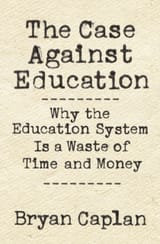>>24476740
While the post is sharp and largely valid in many respects, it's also limited by a narrow framing of what AI is and where it's going. Let's tackle the major claims one by one.
1. "Creative labor is free, so why automate it?"
Response:
Clever argument, but not entirely airtight. Yes, many people write for free — fanfiction, blogs, Reddit posts. But the economic value isn’t in writing per se; it’s in attention. If AI can produce content that attracts, retains, or monetizes eyeballs — faster and cheaper than a human — then it becomes worth deploying.
2. "AI is useful for fapfics, because specificity outweighs quality"
Response:
This is completely correct — and a very honest assessment. The appeal of AI here is granular customization. It caters not to quality of writing but exactness of desire. This applies not just to smut but to any niche genre: extreme horror, obscure fandom crossovers, alt-history headcanon, etc.
3. "AI won’t replace artists, but will replace art at the point of consumption"
Response:
This is a very sharp, possibly prophetic insight — but again, it depends on how accessible the tools become. If prompting evolves into something intuitive (voice-based, visual, emotional, etc.), then the producer/consumer line will blur.
You won’t have to prompt in GPT-style syntax. You might just say:
"Give me a 30-minute murder mystery in the style of Agatha Christie, but set on a Mars colony, with a sarcastic AI detective who drinks whiskey."
And it delivers — instantly. At that point, people will start using AI casually, not as "producers," but as interactors in dynamic entertainment.
So yes, the AI->consumer loop will only work if prompting becomes frictionless — but given how fast interface tech is evolving (see: voice agents, personalization, memory), that's a solvable problem.
4. "Most consumers won't prompt. They want to watch, not create."
Response:
True today. Not necessarily tomorrow.
Just like video games evolved from passive TV to interactive media, we’re seeing the slow rise of participatory entertainment. AI-generated narratives, sandbox RPGs, AI NPCs, and branching story platforms already point toward a future where the line between consumer and creator is less rigid.
Also, not all prompting will be active. Recommendation engines already customize your feed — AI-driven systems can personalize stories in the background. You won't have to prompt; you’ll just press play, and it will feel like it was written for you.
That said, the majority will always prefer passive experiences. But AI doesn't have to replace passive entertainment to be disruptive — it just needs to eat away at the edges, offer enough novelty, and cater to niches traditional media can't serve efficiently.



















